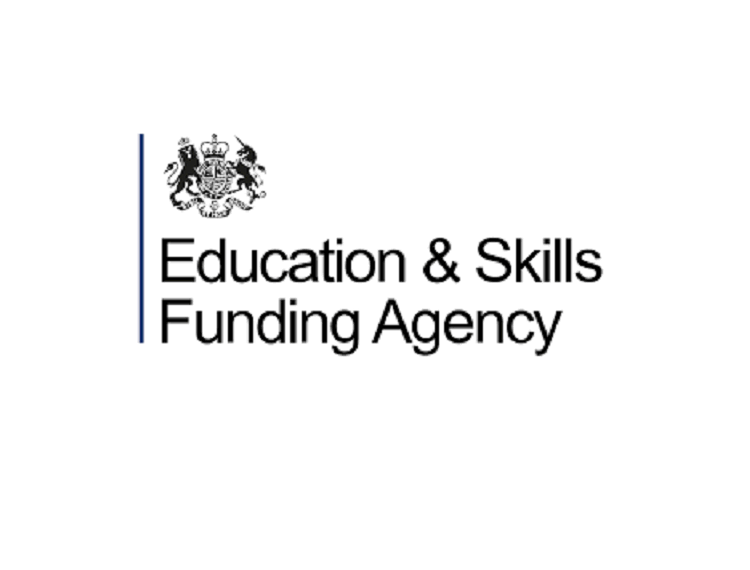ESFA Post-16: intervention and accountability

ESFA today (15 Sept) updated their information about the intervention framework for post-16 education and skills providers.
Intervention
The Education and Skills Funding Agency (ESFA) allocates significant annual funding to providers of education and skills training for young people and adults. ESFA holds providers to account for their performance to ensure they consistently raise standards.
In April 2013, the Department for Education (DfE), jointly with the then Department for Business, Innovation and Skills published Rigour and responsiveness in skills. This forms the framework for rapid and decisive intervention in response to under-performance.
Intervention triggers
ESFA will formally intervene when it has evidence of under-performance. This may include escalating cases for assessment by the Further Education Commissioner.
Where a provider of education or training is under-performing, the ESFA will implement the DfE policy in line with its contracts and funding agreements.
They adopt 2 triggers in identifying educational under-performance:
- an overall inadequate Ofsted judgement (or in the case of a school sixth-form, or an academy sixth-form a separate inadequate Ofsted judgement for the sixth-form provision)
- performance below National Minimum Standards set each year
They adopt a further trigger in identifying financial under-performance:
- inadequate financial health and/or control, as determined by ESFA in accordance with the criteria below
Where intervention is triggered, ESFA will implement the DfE policy in line with any contract or funding agreement, which override any information on this page where there are differences.
Ofsted judgement
Sixth-form and further education colleges
If a sixth-form or further education college receives an inadequate Ofsted judgement, the FE Commissioner will undertake an assessment of the capacity and capability of the college’s current leadership and management to lead improvement, and make recommendations to the minister about appropriate intervention action.
ESFA will issue a Notice to Improve where a college receives an inadequate Ofsted judgement, setting out conditions that the college must meet in a time bound period in order to receive continued funding. All Notices will be published on www.GOV.UK.
Independent learning providers (ILPs)
Where an ILP receives an inadequate Ofsted judgement, ESFA will typically terminate the contract and seek a better provider, subject to protecting the interests of learners.
National minimum standards
School and college accountability systems have been reformed to set higher expectations, and to make the system fairer, more ambitious, and more transparent. Further information on how the DfE is applying the minimum standards to the performance of schools and colleges can be found on the 16 to 18 minimum standards page published on GOV.UK. All colleges and ILPs that deliver apprenticeship (all age) and/or adult (19+) education and training provision are required to meet minimum standard thresholds using the qualification achievement rate (QAR) methodology. Those that fail to meet these standards will be subject to the ESFA’s intervention policy.
Financial health and control
Sixth-form and further education colleges
ESFA assess college financial health in line with Part 3 of the college financial planning handbook.
They assess financial control to be inadequate where one or more of the following exists:
- qualified audit opinion on its financial statements
- modified regularity report
- qualified audit opinion on a funding audit
- significant fraud
- critical review of financial management and governance
Where a college has inadequate financial health and/or control, ESFA will write to the college to confirm the position and consider appropriate intervention activity with reference to the funding agreement and the most recent departmental policy. This may include an assessment by the FE Commissioner and/or the issue of a Financial Notice. All Notices will be published on www.GOV.UK.
Financial Notice to Improve – financial health
When ESFA issues a college with a Financial Notice to Improve (FNtI), the college will be required to improve its financial health. This may include the preparation and implementation of a financial recovery plan.
ESFA will determine when the college has made sufficient progress for the FNtI to be lifted based on a set of conditions included within the notice.
Financial Notice to Improve – financial control
It will be made clear to the college what needs to improve, and the action plan that a college has to produce will be used to monitor progress against the weaknesses identified. It is expected that a college will address all financial management and control weaknesses within a specified timescale.
ESFA will determine when the college has made sufficient progress for monitoring to cease and the notice lifted, based on a set of conditions included within the notice.
There are special arrangements for Financial Notices in cases of structural change and/or merger.
Independent learning providers
ESFA assess ILP financial health in line with the published methodology.
Where an ILP has inadequate financial health, ESFA will consider each case on its merits but reserves the right to take action in accordance with the contract.
Early intervention for colleges
ESFA has issued separate information on the approach to managing risk in colleges. They will work with colleges to facilitate swift mitigating actions that focus on ensuring a return to sound financial resilience and, where required, improvement in quality. Their aim is to lower the risk of a college falling into the scope of formal intervention measures and achieve a rapid turnaround at a lower cost to public funds, while maintaining high quality learning delivery to students, adult learners and employers.











Responses